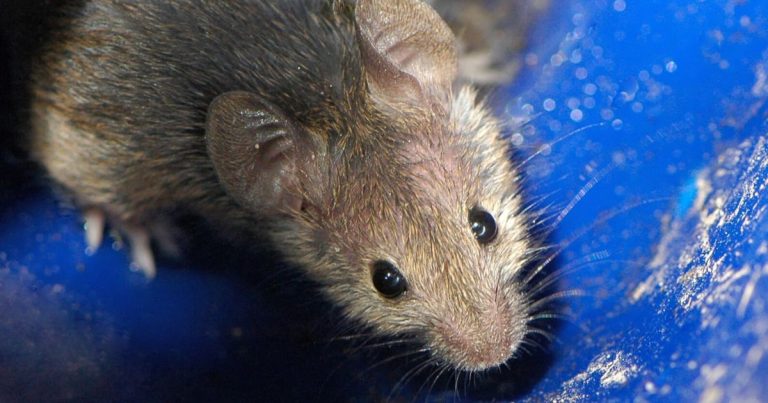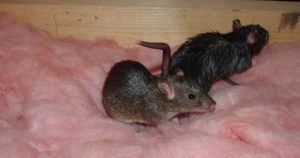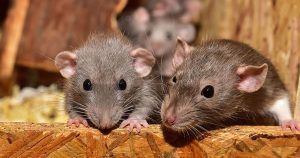
Mouse control is a significant concern in the pest control industry, yet many misconceptions cloud the topic. Understanding the truth behind common mouse control myths can empower you to make informed decisions in keeping your space rodent-free. From the effectiveness of traps to the use of certain repellents, many widely accepted beliefs lack scientific backing.
You might think using a few store-bought traps will solve your mouse problem, but the reality is more complex. Relying on these myths can lead to inadequate solutions and an ongoing pest issue. A deeper look into these myths reveals effective strategies that truly work for mouse control.
By discerning fact from fiction, you can tackle mouse infestations with confidence. You deserve accurate information that supports successful pest management practices, ultimately making your living or working environment healthier and more comfortable.
Understanding Mouse Behavior
Mouse behavior is influenced by environmental factors, food sources, and their natural instincts. Knowing these behaviors can help clarify common myths and misconceptions prevalent in pest control.
Common Misconceptions About Mice Control
Many misconceptions exist regarding mouse behavior and control. One common myth is that mice only invade dirty homes. They seek shelter, food, and warmth, regardless of cleanliness.
Another myth is that a single mouse sighting indicates a major infestation. Mice are curious creatures; you may only see one at a time. If you spot one, more are likely nearby, but not necessarily a large population.
Additionally, some believe that leaving food out will deter mice. This is not true; food attracts them. Proper storage and sanitation are essential in preventing mouse invasions.
Myth vs. Reality: Mouse Habits and Attractants
Understanding what attracts mice is crucial for effective control. Mice are omnivorous and drawn to various food sources, including grains, seeds, and pet food.
Debunking the myth that they prefer cheese, you should know that any food item, especially those high in fat and protein, can be enticing.
Moreover, mice are nocturnal, which affects their feeding and nesting habits. They prefer dark, hidden nest spaces in wall voids or attics.
Eliminating food sources and sealing gaps can significantly reduce the chances of attracting these pests. Familiarizing yourself with these habits allows for a more effective control strategy.
Proactive Mouse Prevention Techniques

Implementing effective mouse prevention techniques is crucial for protecting your home from infestations. Focus on practical strategies to eliminate entry points and reduce food sources that attract mice.
Strategies for Mouse-Proofing Your Home
Begin by inspecting your home for potential access points. Common areas include gaps around doors, windows, vents, and utility lines. Seal these openings with materials like caulk or steel wool, as mice can squeeze through very small spaces.
Next, consider installing door sweeps and repairing any damaged screens. This will help block entry while allowing ventilation. It’s also wise to check your foundation for cracks and fill them appropriately.
Additionally, assess your attic and basement, as these areas often remain unchecked. Cover vents with mesh and ensure that your chimney has a cap. These measures limit access to these hidden spaces.
Rodent Prevention Tips
To discourage mice, manage your food storage and waste disposal. Store food in sealed containers and dispose of trash regularly. Clean up spills and crumbs promptly to prevent food sources from attracting pests.
Maintain a clutter-free environment, particularly in storage areas. Mice thrive in disorganized spaces where they can hide and nest. Declutter your home regularly to eliminate potential habitats.
Lastly, consider using natural deterrents. Peppermint oil or vinegar can effectively repel mice. Place cotton balls soaked in these substances near entry points to keep mice at bay.
Effective Mouse Control Methods

Implementing effective mouse control methods is essential to maintaining a pest-free environment. This includes understanding modern approaches and specific strategies for treating mouse infestations in areas like Fort Worth.
Modern Approaches to Mouse Control
Technology has significantly changed the landscape of mouse control. Integrated Pest Management (IPM) combines various strategies for a comprehensive solution. This method emphasizes prevention, monitoring, and control, integrating:
- Exclusion: Seal entry points and use materials like steel wool.
- Monitoring: Use traps and bait stations to track mouse activity.
- Habitat Modification: Eliminate food sources and nesting materials by keeping areas clean.
Additionally, eco-friendly traps are gaining popularity. These traps reduce harm to non-target animals and can be reused. Ultrasonic repellents emitting sounds to deter rodents are also emerging tools.
Effective Mouse Control Strategies in Fort Worth
If you live in Fort Worth, implementing targeted strategies can significantly improve your mouse control efforts. Start by focusing on environmental management—keep trash sealed in rodent-proof containers and ensure food is stored tightly in secure locations. Preventative measures play a crucial role in minimizing infestations and safeguarding your home.
Here are some effective tips:
- Inspect Your Property: Look for cracks, gaps, or holes around doors, windows, and walls, and seal them with durable materials to block entry points.
- Maintain Landscaping: Regularly trim shrubs, keep grass short, and remove debris around your home to eliminate potential hiding spots for mice.
- Trap Placement: Place snap traps strategically where you notice signs of mice activity, such as droppings, gnaw marks, or nesting materials.
Professional pest control services can provide advanced and tailored solutions for severe infestations specific to the Fort Worth area. These services use innovative techniques and humane approaches to effectively manage and prevent rodent problems.
Critter Stop is a trusted name in humane wildlife removal and pest control, offering expert services to address even the most challenging infestations. Call Critter Stop at (214) 234-2616 for a free inspection and take the first step toward a mouse-free home. With a fantastic reputation and outstanding customer reviews, Critter Stop is known for its high-quality work and exceptional customer service. Protect your home today with solutions you can count on!


